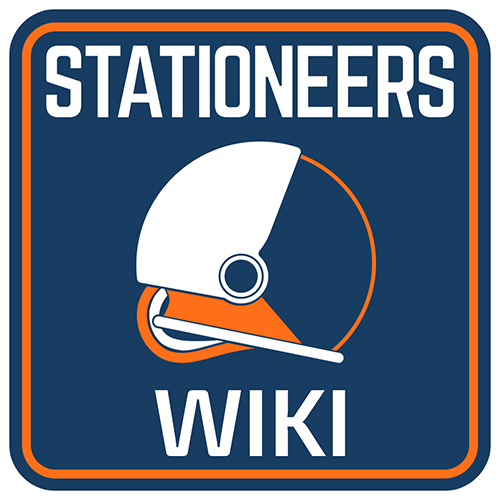Difference between revisions of "SystemD Server Guide"
From Unofficial Stationeers Wiki
(First draft. Should be functional.) |
m (Fixed minor typos) |
||
| Line 4: | Line 4: | ||
* A machine that runs any Linux distribution that uses SystemD | * A machine that runs any Linux distribution that uses SystemD | ||
* Access to, and basic knowledge of your Linux shell | * Access to, and basic knowledge of your Linux shell | ||
| − | * sudo-rights | + | * <code>sudo</code>-rights |
* At least 16GB RAM | * At least 16GB RAM | ||
| Line 46: | Line 46: | ||
WantedBy=multi-user.target</code> | WantedBy=multi-user.target</code> | ||
---- | ---- | ||
| − | The stuff under <code>[Unit]</code> and <code>[Install]</code> is just to name the service in Linux, and declare when it's safe to start. It's the stuff under < | + | The stuff under <code>[Unit]</code> and <code>[Install]</code> is just to name the service in Linux, and declare when it's safe to start. It's the stuff under <code>[Service]</code> that is the "business end" of this file. |
<code>ExecStartPre</code> runs the <code>steamcmd</code> application to update the dedicated server. You might want to check that <code>steamcmd</code> is actually installed in /usr/games/ by running the following command: <code>find /usr/ -name "steamcmd"</code><br> | <code>ExecStartPre</code> runs the <code>steamcmd</code> application to update the dedicated server. You might want to check that <code>steamcmd</code> is actually installed in /usr/games/ by running the following command: <code>find /usr/ -name "steamcmd"</code><br> | ||
| Line 52: | Line 52: | ||
<code>User</code> and <code>Group</code> ensures that the dedicated server runs with the user we set up earlier.<br> | <code>User</code> and <code>Group</code> ensures that the dedicated server runs with the user we set up earlier.<br> | ||
<code>StandardOutput=journal</code> directs all log-messages to the system journal. If something goes wrong, you don't have to locate any log-files, you just run the command <code>journalctl -fu stationeers</code> to browse the journal for what service </code>stationeers</code> has output.<br> | <code>StandardOutput=journal</code> directs all log-messages to the system journal. If something goes wrong, you don't have to locate any log-files, you just run the command <code>journalctl -fu stationeers</code> to browse the journal for what service </code>stationeers</code> has output.<br> | ||
| − | <code>Restart=on-failure</code> ensures that if the server crashes, it will automatically restart. | + | <code>Restart=on-failure</code> ensures that if the server crashes, it will automatically restart.<br> |
<code>WorkingDirectory=/home/stationeers</code> makes sure that everything we do assumes that we're standing in this folder when we do it. It's kind of redundant here, but I keep it in for safety. | <code>WorkingDirectory=/home/stationeers</code> makes sure that everything we do assumes that we're standing in this folder when we do it. It's kind of redundant here, but I keep it in for safety. | ||
Revision as of 14:15, 8 December 2022
[Category:Tutorials]]
Contents
Requirements
- A machine that runs any Linux distribution that uses SystemD
- Access to, and basic knowledge of your Linux shell
-
sudo-rights - At least 16GB RAM
Preparing the server
To maximize server security, we will be setting up a dedicated user that only has the privileges to run the dedicated server, and nothing else.
sudo useradd -m stationeers
We won't need to log in with the user at all, so to increase security even more, let's prevent anyone from logging in with the user.
sudo nano /etc/passwd
Find the line that starts with stationeers:x: (it's most likely the last line in the file). Replace the path at the end of this line (probably says /bin/bash) with /sbin/nologin.
Installing SteamCmd
Follow the instructions here to get SteamCmd installed: https://developer.valvesoftware.com/wiki/SteamCMD#Package_From_Repositories
Creating the SystemD service
Now it's time to create the service-file for SystemD so we can use it to control starting and stopping the Stationeers server.
sudo nano /etc/systemd/system/stationeers.service
Paste the following into the editor:
[Unit]
Description=Stationeers Dedicated Server
Wants=network-online.target
After=syslog.target network.target nss-lookup.target network-online.target
[Service]
Environment="LD_LIBRARY_PATH=./linux64"
ExecStartPre=/usr/games/steamcmd +force_install_dir "/home/stationeers/StationeersDedicatedServer" +login anonymous +app_update 600760 validate +quit
ExecStart=/home/stationeers/StationeersDedicatedServer/rocketstation_DedicatedServer.x86_64 -loadlatest "NAME_OF_SAVE" PLANET -difficulty DIFFICULTY_SETTING -settings StartLocalHost true ServerVisible true LocalIpAddress IP_ADDRESS ServerName "NAME_IN_SERVER_LIST" ServerPassword "YOUR_SECURE_PASSWORD" ServerMaxPlayers MAX_PLAYERS UPNPEnabled false
User=stationeers
Group=stationeers
StandardOutput=journal
Restart=on-failure
WorkingDirectory=/home/stationeers
[Install]
WantedBy=multi-user.target
The stuff under [Unit] and [Install] is just to name the service in Linux, and declare when it's safe to start. It's the stuff under [Service] that is the "business end" of this file.
ExecStartPre runs the steamcmd application to update the dedicated server. You might want to check that steamcmd is actually installed in /usr/games/ by running the following command: find /usr/ -name "steamcmd"
ExecStart starts the Stationeers dedicated server. Be sure to replace all the UPPERCASE entries with what you want for your server. See here: https://github.com/rocket2guns/StationeersDedicatedServerGuide/blob/main/README.md
User and Group ensures that the dedicated server runs with the user we set up earlier.
StandardOutput=journal directs all log-messages to the system journal. If something goes wrong, you don't have to locate any log-files, you just run the command journalctl -fu stationeers to browse the journal for what service </code>stationeers</code> has output.
Restart=on-failure ensures that if the server crashes, it will automatically restart.
WorkingDirectory=/home/stationeers makes sure that everything we do assumes that we're standing in this folder when we do it. It's kind of redundant here, but I keep it in for safety.
Wrapping it all up
Now that we've created the service-file, we have to let SystemD know it's there. Run sudo systemctl daemon-reload to do that. Any time you edit the service-file, you have to run this command to make SystemD aware of the changes you've made.
That's it! All we need to do now is run sudo systemctl start stationeers, and it will download Stationeers Dedicated Server, start it with the parameters we've set, and run until we either reboot the machine, or run sudo systemctl stop stationeers.
Want the dedicated server to start with the machine every time you reboot? Just run sudo systemctl enable stationeers to enable start-on-boot, and sudo systemctl disable stationeers to disable it again.
